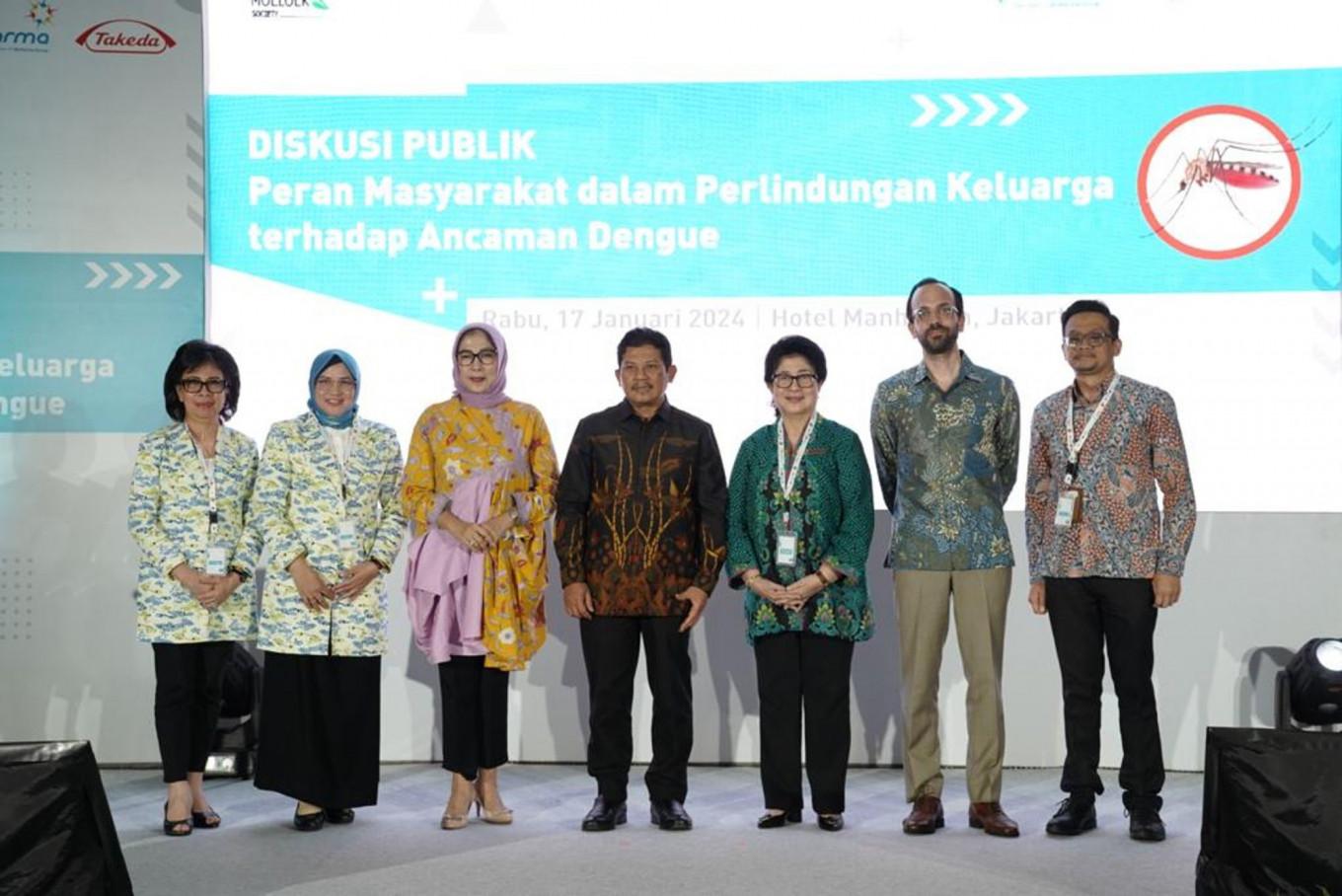Popular Reads
Top Results
Can't find what you're looking for?
View all search resultsPopular Reads
Top Results
Can't find what you're looking for?
View all search resultsCommunity’s role crucial in protecting families against dengue
Change text size
Gift Premium Articles
to Anyone
T
he Farid Nila Moeloek (FNM) Society, in collaboration with Bio Farma and PT Takeda Innovative Medicines, held a public discussion themed "Importance of the community’s role in protecting families against the threat of dengue", as part of a broader initiative to bolster dengue control and prevention measures in Indonesia.
The hybrid event on Jan. 17 was attended by more than 500 participants, bringing together diverse stakeholders committed to addressing the persistent challenges posed by dengue in the country.
Indonesia, where dengue is endemic, is grappling with an annual surge in dengue fever. As of the final week of 2023, the Health Ministry had recorded 98,071 dengue cases and 764 deaths attributed to the disease.
FNM Society chairwoman and founder Nila Djuwita F.A. Moeloek, a specialist optometrist consultant, emphasized the need for communities to take an active role in preventing dengue at the household level before scaling up to the national level.
She added that the significant social and economic impacts of delayed dengue treatment, particularly in children, underscoring the necessity for proactive measures at both individual and community levels.
Deputy Health Minister Dante Saksono Harbuwono, a gastroenterologist, pointed to an alarming rise in dengue cases over the past decade, which he attributed in part to climate change.
He emphasized that the government was committed to a national strategy on dengue control, which covered vector management, surveillance, community participation, government programs and research. Dante also stressed the importance of deploying innovative technology, such as Wolbachia-treated mosquito, and vaccines in conjunction with community engagement programs.
The ministry’s Director General of Disease Prevention and Control Maxi Rein Rondonuwu, who holds a doctorate of health service management, reiterated the government's commitment to controlling dengue through various strategies, including a proposed dengue vaccination rollout starting no later than 2025.
South Kalimantan’s Tabalong Regent Anang Syakhfiani, who has a master of science, meanwhile underlined that active community participation was indispensable to preventing dengue, citing the success of the regency’s 3M Plus program.
The government initiative encourages draining and covering reservoirs of water and recycling used products that can serve as breeding grounds for mosquitoes.
Ali Ghufron Mukti, president director of the Healthcare and Social Security Agency (BPJS Kesehatan), pointed to the increasing burden on the agency from dengue treatment costs and the need for a collective solution. He also highlighted the potential role of BPJS Kesehatan in achieving Indonesia’s goal of zero dengue deaths by 2030.
Representatives from medical associations, including Erni Juwita Nelwan and Hartono Gunardi, as well as Takeda Innovative Medicines president director Andreas Gutknecht, all agreed on the importance of a comprehensive strategy that included vaccination to protect individuals of all ages from the pervasive threat of dengue.
Erni, a specialist in internal medicine and tropical and infectious diseases, specifically emphasized the need for broader protection, especially for people with underlying conditions, while pediatrician Hartono stressed vaccination for children, who were particularly vulnerable to contracting dengue.
Gutknecht reiterated Takeda's commitment as an active partner in educating and preventing dengue fever in Indonesia while underlining the necessity of an integrated approach. Takeda’s collaborative effort with government agencies, medical professionals, community leaders and pharmaceutical partners presented a united front in the battle against dengue in Indonesia, he said..
Gutknecht told The Jakarta Post that along with the government’s 3M Plus program, innovation and especially vaccination were important components of an integrated, holistic approach in the fight against dengue.
“The vision is the national goal of Indonesia, to have zero dengue deaths by the year 2030. We are working with the Health Ministry and other stakeholders, employers, schools, communities, to together achieve that goal,” he said.










